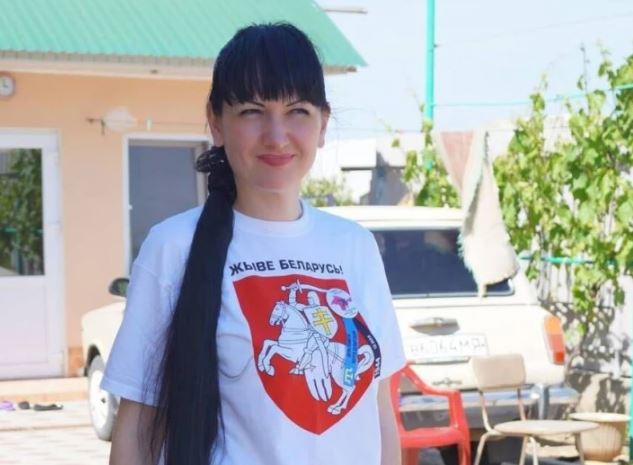Russian authorities in Ukraine’s Crimea must drop all charges against journalist Iryna Danilovich, release her immediately, and cease prosecuting journalists for their reporting, the Committee to Protect Journalists said Monday.
On May 11, Danilovich, a Crimea-based journalist who went missing on April 29, was found by her lawyer in a pre-detention center in Simferopol, the capital of Russian-occupied Crimea, according to media reports and a report by the Ukrainian human rights organization Zmina. She had been charged with illegally handling explosives under Article 222.1.1 of the Russian criminal code by the Crimean branch of Russia’s Federal Security Service (FSB), according to those sources; if found guilty, she faces up to eight years in prison and a fine of up to 100,000 rubles (US$1,560).
Danilovich, who denied the charges, alleged that she was fed once a day and kept in the basement of the FSB headquarters in Simferopol for eight days, from April 29 until she was taken to court on May 7, her lawyer Aider Azamatov told the Ukrainian media project Graty and CPJ via messaging app. On May 7, the Kyiv District Court of Simferopol arrested Danilovich for two months pending the investigation, according to reports.
During her detention at FSB headquarters, Danilovich was questioned and forced to take a polygraph about her alleged connections to foreign security services, media, and other organizations, and her involvement in the Crimean Solidarity movement, an organization of activists, lawyers, and relatives of Crimean political prisoners, Azamatov told Graty, Zmina and CPJ.
Also during her detention, Danilovich had a bag put over her head, and her captors threatened to take her out “into the woods” or to take her to the besieged southern Ukrainian city of Mariupol if she hid anything, according to Azamatov. She was taken to court after agreeing to say on video that she had not been subjected to coercion and signing blank forms as a condition of her release, she was told that 200 grams of explosives were found in her purse, where she kept medical needles and tourniquets that she used in her work as a nurse.
“The brutal treatment of Iryna Danilovich is extremely alarming and should not go unpunished,” said Gulnoza Said, CPJ’s Europe and Central Asia program coordinator, in New York. “Russian authorities who control Crimea have already silenced many voices by imprisoning independent journalists and shutting down media outlets. They must drop the trumped-up charges against Iryna Danilovich, release her immediately, and stop resorting to fabricated cases to harass and intimidate Crimean journalists.”
Danilovich works at the medical center in Vladyslavivka and contributes to local news websites InZhir Media and Crimean Process. Azamatov told CPJ that he was able to see Danilovich on May 12.
“There was no physical violence against her, but there was very strong psychological pressure” in the form of threats and insults to her and her father, he said.
Azamatov told CPJ that Danilovich was also interrogated about her ties to Krym.Realii, a Crimea-focused outlet run by the Ukrainian-language service of the U.S. Congress-funded broadcaster Radio Free Europe/Radio Liberty. Danilovich is not working for Krym.Realii, but was interviewed by the outlet in October 2021 for a piece about the health situation at the hospital where she worked, Azamatov said.
On April 29, unidentified men searched Danilovich’s home in the village of Vladyslavivka in Crimea and told her parents that she had been placed under detention for 10 days for allegedly sending information to a foreign country, as CPJ documented.
On May 4, the Prosecutor’s Office of the Autonomous Republic of Crimea, which is based in the Ukrainian capital Kyiv, launched criminal proceedings for illegal searches and detention of Danilovich under part 2 of Article 146 and part 2 of Article 162 of the Ukrainian criminal code. On May 5, Danilovich’s father told Zmina he got access to a video showing his daughter being forced into a car by plainclothes men at a bus station.
On February 16, 2022, a Russian court in Simferopol sentenced Vladislav Yesypenko, a correspondent with the U.S. Congress-funded broadcaster Radio Free Europe/Radio Liberty who said he was subjected to electrical shocks in detention, to six years in prison for allegedly possessing and transporting explosives, as CPJ documented.
When CPJ conducted its December 2021 prison census, Russia had imprisoned at least four journalists in occupied Crimea in retaliation for their work. CPJ called the Ministry of Internal Affairs of the Republic of Crimea for comment, but the call did not connect.
Committee to Protect Journalists



















































